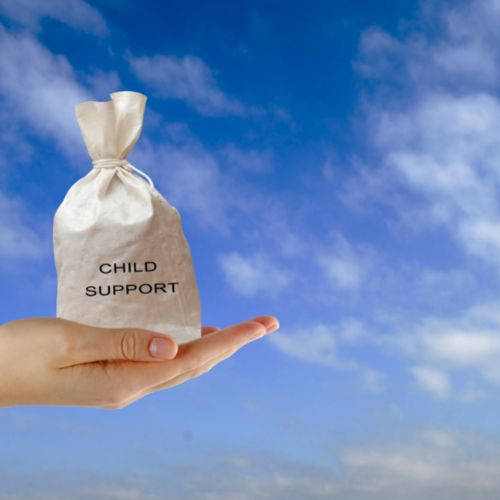ARTICLE – CHILD
AND SPOUSAL MAINTENANCE IN NORTHERN IRELAND – THE FACTS
When
dealing with issues of maintenance following a marriage or relationship
breakdown, there are 2 separate areas to look at; firstly any entitlement/
obligation to pay ongoing child maintenance and secondly any entitlement/
obligation to pay ongoing spousal maintenance.
Maintenance for Children
Under Article 3 of the Domestic
Proceedings (NI) Order 1980, either party to a marriage may apply for
maintenance on the grounds that the other party has failed to make a proper
contribution towards reasonable maintenance for any child of the family. An
application for child maintenance on this ground can usually be resolved either
by agreement or through an application to the Child Maintenance Service https://www.nidirect.gov.uk/contacts/child-maintenance-service, where the
amounts cannot be agreed between the parties. Even if a Court Order is made in
respect of child maintenance, a parent can still apply to the Child Maintenance
Service for an assessment and any results of this assessment will replace the
order made by the Court. If both parents
are in agreement about the sum of maintenance that will be paid for a child,
they can apply by consent to the Court to make an order for financial provision
in the agreed terms thereby making it enforceable through the court.
The
Court can also make Orders for periodical payments and/or a lump sum of up to
£1000 in the Family Proceedings Court.
Applications for larger lump sums can be made in certain circumstances
in the County Court or High Court. An application can be made under Schedule 1
of the Children Order (NI) 1995 for financial provision for children for a lump
sum or for an order for settlement to be made for the benefit of the child of
property, in certain circumstances.
An
order can also be made in favour of a child over 18 who is in ongoing education
or training or in certain other special circumstances if the parents are living
in separate households.
In
making any of the above orders, the court will take in to account the income,
earning capacity, property and other financial resources which each person has
or is likely to have in the foreseeable future, their financial needs,
obligations and responsibilities, the financial needs of the child, the income,
earning capacity, property and other financial resources of the child, any
physical or mental disability of the child, the manner in which the child was
being, or was expected to be, educated or trained.
Spousal Maintenance
While
the parties are still married: Either party to the marriage can apply to the
Court for an Order for maintenance on the grounds that the other party:
·Has
failed to provide reasonable maintenance for the applicant; or
·Has
since the date of marriage, committed adultery; or
·Has
behaved in such a way that the applicant cannot reasonably be expected to live
with the respondent; or
·Has
deserted the applicant.
Once parties have started
divorce proceedings: When deciding
what financial provision to make for either party, the Court must take into
account a number of factors, including the income, earning capacity, property
and other financial resources each party has or is likely to have; the
financial needs, obligations and responsibilities each party has or is likely
to have; the age of the parties and the duration of the marriage.
There
are a number of Orders the Court can make on divorce. The Court can make an
Order for periodical payments, which are ongoing regular payments of
maintenance designed to meet the day to day living expenses of the party. The
Court can also make an Order for secured periodical payments where a lump sum
is invested to produce an income that will be paid periodically. The Court can
make a lump sum Order which is a ‘once and for all’ payment. Finally, the Court
can make a property adjustment Order which gives the Court power to transfer or
settle the parties’ property.
Buy out of Maintenance:
This
is a term used to describe making a lump sum or property adjustment Order
instead of periodical payments. The payment of periodical payments results in
an ongoing financial relationship between the parties. A lump sum or property
adjustment Order can result in the applicant receiving a larger sum of money
initially or being given a transfer of property instead of receiving regular
smaller payments. The person making the one-off payment can ‘capitalise’ or
‘buy out’ the maintenance, in the sense that they are paying a greater amount
now to avoid having to make weekly or monthly payments on an ongoing basis.
The
idea of a buyout of maintenance in relation to spousal maintenance on divorce
is in keeping with the notion of a ‘clean break’ to which the Court must have
regard. The clean break principle means that the parties should be encouraged
to make arrangements about their finances which enable them to finalise matters
and move on. The idea that there should be no ongoing financial relationship
between the parties, if possible, does not however apply to the relationship
between parent and child. Lump sum Orders, as an alternative to, rather than as
an addition to, an Order for periodical maintenance are not considered by the
Courts as an appropriate way of dealing with a child’s ongoing long-term needs,
and it is therefore rare for there to be a buyout of a child’s maintenance.


